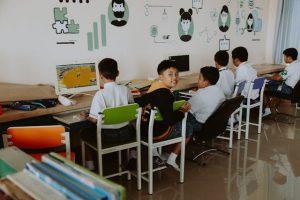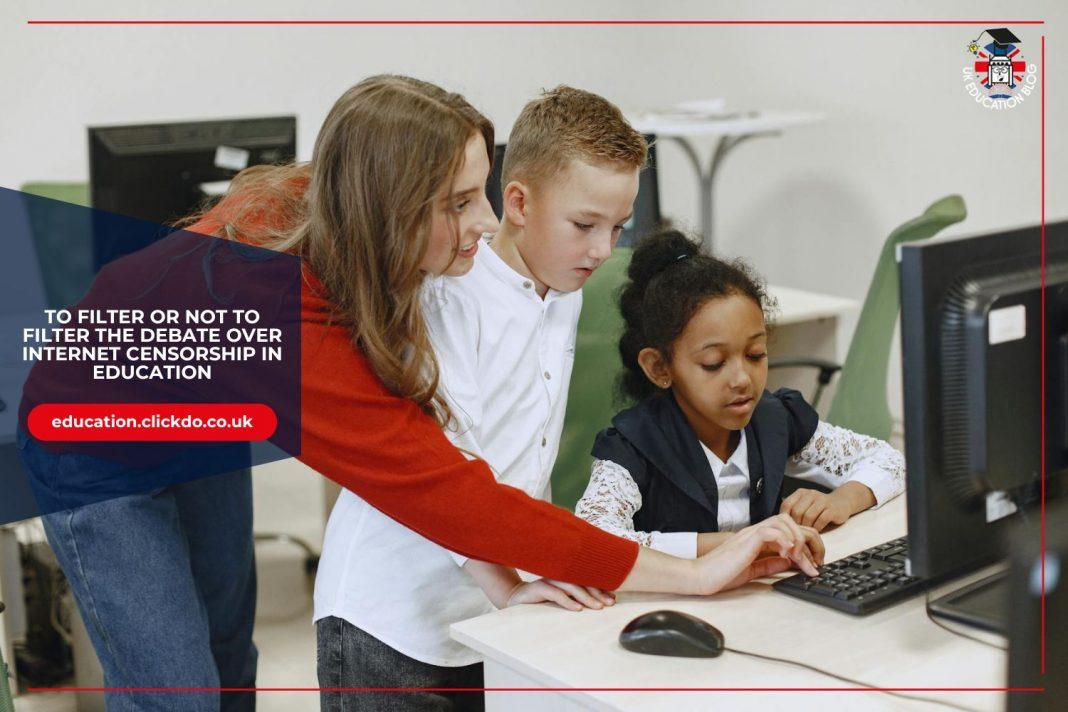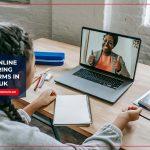There’s little doubt that technology plays a significant role in education.
Although digital tools are a standard part of the curriculum, online safety has become a concern for schools. Due to the fear of harmful content on the internet, schools have relied on content filters.
One emerging concern with content filtering in schools is the extent of internet censorship. But how can we best strike a balance between ensuring online safety and avoiding undue internet censorship?
The Pros of Internet Filtering in Schools

Schools, especially public schools, have a responsibility to the stakeholders and the children within the district.
As part of the goal of keeping children safe, they believe using content filters will remove inappropriate content.
The following are the key advantages of internet filters:
1. Creating a Safe Online Environment
Not all content on the internet is suitable for young students. Internet filters are essential to block access to age-inappropriate material. At the same time, these filters must allow the use of digital learning tools. Schools are worried that without filters, children could become targets for predators while on school premises.
2. Enhancing IT Security
Internet filters not only protect students but also safeguard the school’s network. School-provided laptops and tablets are more susceptible to internet threats without content controls. The web filtering tool can block access to websites with malware. However, children may need to gain more internet savvy to avoid phishing attempts or clicking on malicious links.
3. Minimising Distractions in the Classroom
Web filtering can help children focus on learning during school hours. School-issued devices can have software that blocks social media platforms, internet games, and streaming sites. Kids can focus on learning by minimising distractions and improving their overall school performance.
4. Meeting Parents’ and School Board Expectations
School districts serve both students and the community. Parents and school boards often have strong opinions about the use of online technology. They expect the school to use tools to block children from accessing inappropriate content.
The Cons of Internet Filtering in Schools

While internet filters can be helpful in schools, they also have downsides, especially when it comes to blocking content.
1. Limiting Freedom of Speech
Censoring the internet in schools raises concerns about stifling freedom of expression. Even though schools want to keep students safe, this might stop them from seeing many points of view.
Organisations like the National Coalition Against Censorship have also expressed concerns that schools block access to essential resources such as gay rights groups.
2. Over-Blocking
Content filters are not perfect. They can block access to legitimate resources that children need for school. If a required website is blocked, admins must manually remove the block.
If this occurs too frequently, it can take up valuable time during the school day. If too much is blocked, students may be unable to gather the information they need to complete an assignment.
3. Inequality of Access to Information
Internet filters can unintentionally create information gaps. These gaps exist between students with unfiltered home internet access and those relying solely on school devices.
Students with home internet access may have more chances to develop their digital literacy skills. Moreover, web filters need careful adjustment based on the students’ age group. Without this, filters might block websites that are appropriate for older students but not for younger ones.
The Future of Internet Filtering in Schools
While internet filtering has pros and cons, schools can become part of the conversation. Although unfiltered access isn’t likely to gain school board approval, schools can adopt the following best practices:
- Customise Filtering Policies. Internet content control is not a one-size-fits-all solution. Schools should adjust their filtering policies based on the age group of the students. Filters could also change based on whether the student is in or out of class when using a school-sponsored device.
- Supervise Unfiltered Internet Use. There should be a possibility of removing web content filters in specific settings. For instance, schools could lift filters when the work is done in a supervised classroom or computer lab setting.
- Use a VPN. If censorship mainly aims to block harmful websites, a Virtual Private Network (VPN) with malware detection can be a safe choice. Encouraging a responsible VPN download and use can provide secure access to educational content that might otherwise be restricted.
- Allow Students to Request Access. Students should have an easy way to request websites get added to “safe” lists. Some web filters have tools that allow a simple ticketing system to get websites permitted or blocked.
Although web filters are intended to protect children in our schools, they can unintentionally cause issues. Filters shouldn’t be overly restrictive and have the option to adjust based on the age of the students. Ultimately, finding the right balance between safety and unrestricted access will empower schools to provide a safe, non-restrictive digital environment.
Meta: Explore the pros and cons of internet filtering in schools and learn how to best strike a balance between online safety and internet censorship.
Author Profile

- Editor in Chief
- Blogger and Educator by Passion | Senior Online Media & PR Strategist at ClickDo Ltd. | Contributor to many Education, Business & Lifestyle Blogs in the United Kingdom & Germany | Summer Course Student at the London School of Journalism and Course Instructor at the SeekaHost University.











